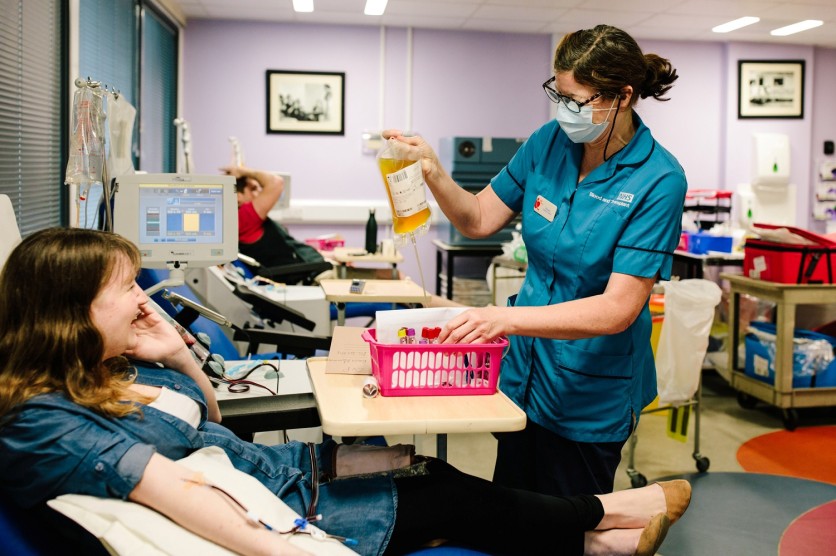As the search for the coronavirus cure continues, scientists in India claim to have identified an antibody that prevents the coronavirus from infecting cells. They hope this could be used to treat COVID-19.
The team is composed of scientists from the Omandurar Medical College. Published in the journal Nature Communications, the study explores whether monoclonal antibodies could help COVID-19 patients. Apparently, the research was done even before the SARS-CoV-2 first came out late last year.

Monoclonal antibodies are types of synthetic protein, which can attach to a certain substance in the body. These antibodies copies how the immune system responds to a threat and are also used to treat some forms of cancer.
An antibody named 47D11 was found to bind to the spike protein, such as the SARS-CoV-2, and blocks it while neutralizing the pathogen. To carry out their study, the researchers used mice with human-like antibodies, which are then injected with spike proteins similar to those viruses causing illnesses like SARS and MERS.
Results show that the mice yielded 51 antibodies that are capable of neutralizing the spike protein. Scientists further observed the subjects to see if antibodies would neutralize SARS-CoV-2 and SARS-CoV. And it did!
The proud researchers
The principal investigator Professor Babak Javid at Tsinghua University School of Medicine, Beijing, and consultant in infectious diseases at Cambridge University Hospitals in the United Kingdom. proudly exclaimed, this is an "interesting study."
"One of the most widely touted experimental (though not yet proven) treatments for COVID is the use of convalescent plasma," Javid added.
Associate professor Berend-Jan Bosch of the Utrecht University Infection and Immunity program co-authored the research, which stands on a previous work his team had done regarding antibodies.
"Using this collection of SARS-CoV antibodies, we identified an antibody that also neutralizes infection of SARS-CoV-2 [the COVID-19 virus] in cultured cells," Bosch said.
He also added that a neutralizing antibody can potentially alter the infection in the host or protect a healthy individual who has been exposed to the virus.
"This discovery provides a strong foundation for additional research to characterize this antibody and begin development as a potential COVID-19 treatment." Frank Grosveld, co-author and academy professor of Cell Biology at the Erasmus Medical Center in Rotterdam, said.
Experts not involved in the research welcomed the findings but also pointed out the study's limitations.
"The block to infectivity is entirely based on cell culture work," Tony Carr, professor of molecular genetics in the Genome Damage and Stability Centre (GDSC) at the University of Sussex, said in a statement.
Penny Ward, visiting professor in Pharmaceutical Medicine at King's College London, said the antibody has the potential to be used to prevent and treat SARS-CoV-2 infection, "however without studying this in an animal model, it is not clear which of these approaches might be most efficient."
The findings would have been more robust if the team were able to show the antibody could prevent and treat COVID19 in animals, she said.
Polly Roy, professor of virology at the London School of Hygiene and Tropical Medicine, said the data the team created is "very good," and enumerated the strong points of their work.
However, Gary McLean, a professor in Molecular Immunology at London Metropolitan University, aired his concerns over the study. Particularly, the test is not done on humans, and he acknowledges its limitations. But he is positive this could be used to treat COVID-19.
The study also looks at convalescent plasma therapy, in which plasma from a COVID-19 survivor is transferred to other patients in the hope of helping them beat the disease.
"While it's an interesting development, injecting people with antibodies is not without risk, and it would need to undergo proper clinical trials," said Simon Clarke, associate professor in Cellular Microbiology at the University of Reading, U.K.
Since December, the coronavirus has already affected over 3,580,610 people worldwide, and almost 251,423have died, according to Johns Hopkins University. Meanwhile, at least 1,159,102 have recovered from the deadly disease.
ⓒ 2026 TECHTIMES.com All rights reserved. Do not reproduce without permission.




